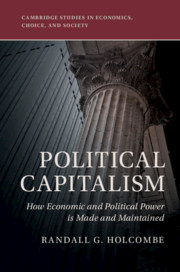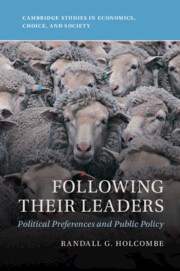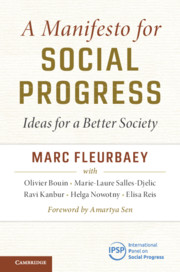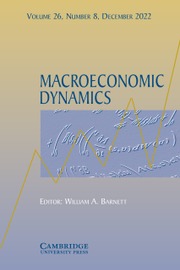Political Capitalism
Problems associated with cronyism, corporatism, and policies that favor the elite over the masses have received increasing attention in recent years. Political Capitalism explains that what people often view as the result of corruption and unethical behavior are symptoms of a distinct system of political economy. The symptoms of political capitalism are often viewed as the result of government intervention in a market economy, or as attributes of a capitalist economy itself. Randall G. Holcombe combines well-established theories in economics and the social sciences to show that political capitalism is not a mixed economy, or government intervention in a market economy, or some intermediate step between capitalism and socialism. After developing the economic theory of political capitalism, Holcombe goes on to explain how changes in political ideology have facilitated the growth of political capitalism, and what can be done to redirect public policy back toward the public interest.
- Describes political capitalism as a distinct system of political economy
- Presents political capitalism as an explanation for the cronyism and corporatism that is widely criticized, and explains these activities as the symptoms of political capitalism
- Uses the theories of rent-seeking, regulatory capture, interest group politics, and elite theory and shows how they explain political capitalism
Reviews & endorsements
Advance praise: The 'mixed economic systems' of the United States and Western Europe once combined market-based institutions operating, to greater or lesser extents, under public-sector control. Randall G. Holcombe’s Political Capitalism documents the morphing of 'mixed' into 'crony'. Like Joseph Schumpeter before him, he warns that capitalism may not survive in a democracy after private business owners realize they can buy protection from pitiless competitive market forces from public officials, who, to advance their own political careers, are only too happy to exercise the state’s coercive powers on behalf of the capitalists’ interests. Robust free and open markets, the engines of prosperity, are transformed thereby into stagnant and corrupt national socialism. Political Capitalism is a bravura contribution to the political economy literature and a death knell for so-called democratic capitalism.' William F. Shughart II, J. Fish Smith Professor in Public Choice, Utah State University
Advance praise: 'For a century, political rhetoric has been constructed around a left-right axis that contrasts markets and states. Randall G. Holcombe explains that this conventional axis is no longer meaningful because we now inhabit a world of political capitalism where politics and economics are thoroughly entangled and inseparable.' Richard E. Wagner, George Mason University, Virginia
Product details
June 2018Adobe eBook Reader
9781108630795
0 pages
3 b/w illus.
This ISBN is for an eBook version which is distributed on our behalf by a third party.
Table of Contents
- 1. The concept of political capitalism
- 2. Political capitalism as an economic system
- 3. The political and economic elite
- 4. Interest groups and political exchange
- 5. Political creation of economic rents
- 6. Transitional gains and rent extraction
- 7. The regulatory state
- 8. Capitalism versus democracy
- 9. The institutional evolution of political capitalism
- 10. Public policy and political capitalism
- 11. Is political capitalism inevitable?





